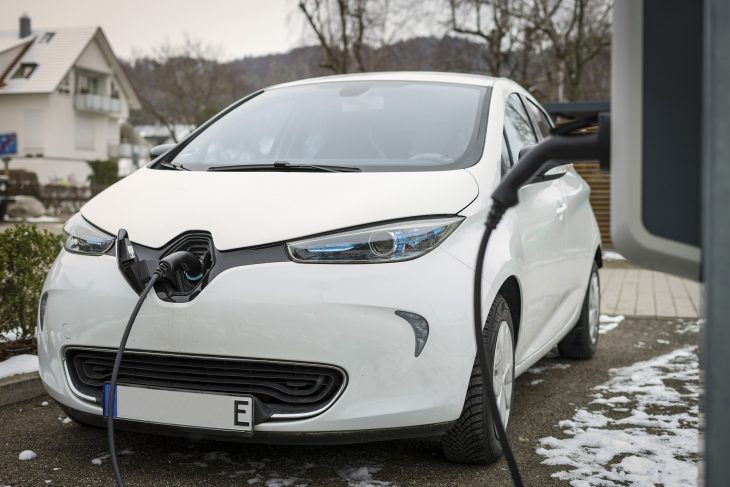Electric cars save on air pollution, noise pollution, and fuel . . . but hit the brakes: Insurance on them usually costs more.
Find out why, who’s wisely steering toward insurance savings on these popular vehicles, and ways you can lower the insurance premium on alternative fuel vehicles.
Why EV Insurance Costs More
Electric vehicles are hitting their stride. New full electric and plug-in hybrid vehicles are in almost all sectors of the auto market.
According to the report “The Electric Vehicles R-EV-olution: Future Risk and Insurance Implications” by Allianz Global Corporate & Specialty (AGCS), the use of electric cars is expected to soar in the near future.
This is due to their cost gradually declining, the choice of available new models likely doubling within five years, their driving range increasing, and consumers, as well as governments, demanding greener low-emission vehicles.
With these benefits and growing popularity, why aren’t even the best auto insurance companies offering lowered rates instead of assigning higher rates to alternative fuel vehicles?
The national average for electric vehicle insurance is $2,575 annually; for all vehicles, it’s $1,904.
The price factor: While EV prices have been lowering, they’re still usually more expensive than conventional cars. The higher a car’s worth, the more an insurance company has to pay if it’s stolen or totaled.
The repair factor: EVs sustain damage more easily, and EV parts are harder to acquire and more expensive to replace than those on gas-powered vehicles. Some also require specialty mechanics. This translates to paying out higher claims due to higher repair costs.
How to Get EV Insurance Savings
Some insurance companies are trying to play fair, offsetting the reasons for the higher rates with alternative-fuel vehicle discounts.
Alternative-Fuel Vehicle Discounts
Travelers offers a Hybrid/Electric Vehicle Discount. Liberty Mutual’s is called the Alternative Energy Discount. AARP car insurance from The Hartford offers a Vehicle Fuel Type discount to seniors that drive hybrid or electric vehicles. These discounts usually range from 5 to 10 percent.
Other major insurers who’ll work with you on your alternative-fuel vehicle policy include Allstate, Geico, Nationwide, Progressive, State Farm, and USAA.
If you own a Tesla Model 3, Model S, Model X, or Roadster, you can save 20 to 30 percent on your car insurance by insuring with Tesla itself, proclaims Elon Musk. As of now, it’s only for Californians.
Try for Other Car Insurance Savings
You still have several opportunities to chip away at that insurance rate.
Readjust your coverage, such as reviewing whether you need to keep comprehensive and collision coverage after paying your car loan. Raise your deductible. Doubling it from $500 to $1,000 could save you nearly 10 percent.
Assess your mileage, especially over this past year. If you’re a low-mileage driver (under 7,500 miles per year), look into usage-based insurance. You could save 10 to 40 percent.
There are also dozens of auto insurance discounts from which to choose, each of which can save you anywhere from 2 percent up to 10 percent on your rate. They include bundling, multi-policy, safe driver, anti-theft device, pay in full, and certain occupations and organizational affiliations.
Shop Around
Start with the convenience of online shopping: Get free online quotes, then follow up with at least three companies to see their offerings in basic rates, special programs, and discounts. I recently did it and saved over $700.
The good news is that the way the alternative-fuels vehicle industry is speeding along, these heavier insurance costs on electric vehicles will be short-lived.
Karen Condor is an insurance expert who writes and researches for the car insurance comparison site, CarInsurance.org.









